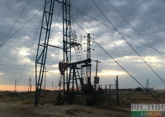Gazprom Neft, the oil arm of Russian gas giant Gazprom, expects a record high oil and gas production this year, as demand recovers and OPEC+ eases the production cuts.
Oil Price notes that Gazprom Neft’s full-year 2021 oil and gas production is expected at over 100 million tons of oil equivalent, for the first time in its history, chief executive officer Alexander Dyukov said in a statement accompanying the firm’s financial and operational results for the period January to September 2021. Gazprom Neft sees further growth potential next year. “Thanks to recovering demand for oil, and the company’s prompt and effective response to the changing market environment, we have demonstrated positive dynamics across our key financial indicators,” Dyukov said.
In the first nine months of 2021, the company’s oil and gas production, including Gazprom Neft’s share in joint ventures, rose by 2.7 percent compared to the same period of 2020, reaching 74.1 million tons of oil equivalent. The growth was driven by an increase in production at new projects, the commissioning of the Tazovskoye field in June 2021, and the launch of an integrated gas treatment complex at the Vostochno-Messoyakhskoye field.
Gazprom Neft had initially targeted to reach 100 million tons of oil equivalent production in 2020. But the crash in demand and oil prices that led to the OPEC+ group (in which Russia is a key member) to curtail collective production delayed some development plans and investments.
Next year, Gazprom Neft expects its investment to rise by more than 10 percent compared to 2021 and to exceed $6.8 billion (500 billion Russian rubles).
In August this year, when OPEC+ started easing the production cuts by 400,000 barrels per day (bpd) every month, Gazprom Neft said that it would be able to swiftly raise its crude oil production in line with the OPEC+ deal for unwinding the cuts. Gazprom Neft has many oil wells, at which it had reduced production because of the OPEC+ production quotas. In addition, some oil wells have been sitting idle since last year, the company told Reuters.










